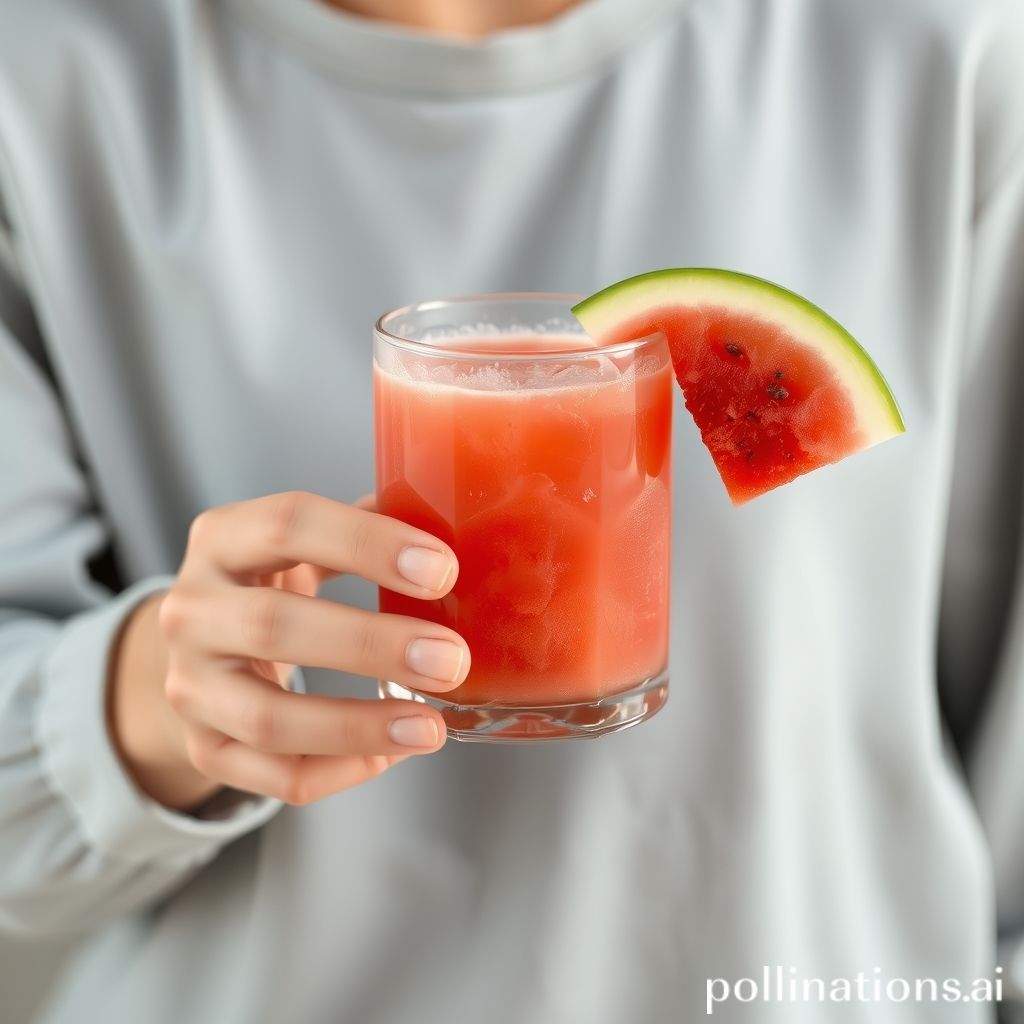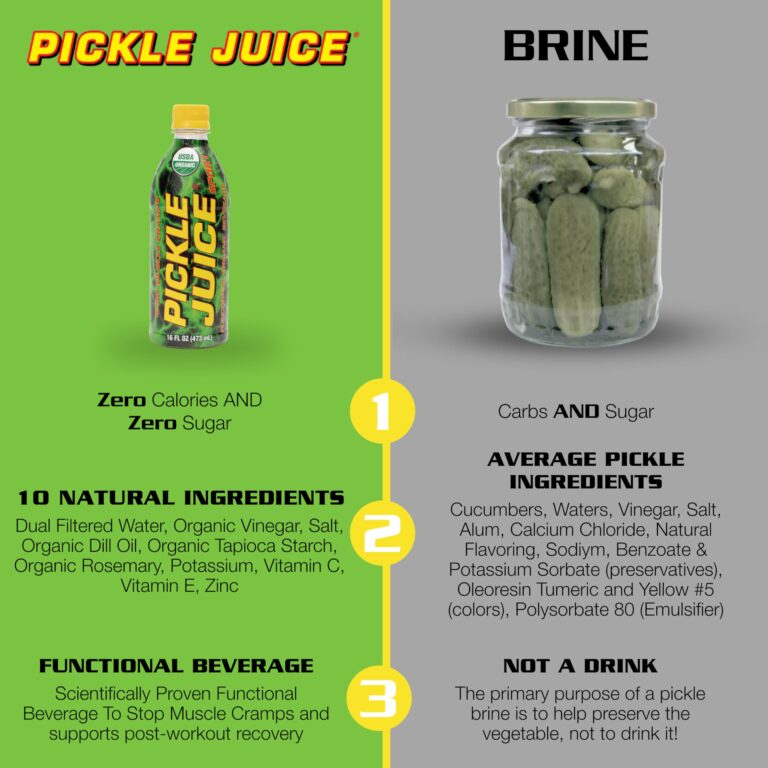How Much Watermelon Juice Should I Drink A Day?
[su_note note_color=”#fb8e00″ text_color=”#000000″ radius=”12″]
How much watermelon juice should you be drinking every day? This is a question that many people are asking as they seek to optimize their health and well-being. Whether you’re a watermelon juice enthusiast or simply curious about its benefits, Discerning the recommended daily intake is crucial.
Watermelon juice is not only delicious and refreshing, but it is also packed with essential nutrients, vitamins, and antioxidants. So, how much should you be drinking? Let’s delve into the details and find out the perfect amount of watermelon juice to incorporate into your daily routine for optimal health benefits.
[su_box title=”
[/su_box]

Nutritional Benefits of Watermelon Juice
1. High Water Content
Watermelon juice is primarily made up of water, containing approximately 92% water content. It is an excellent choice for hydration, especially during hot summer months or after physical activities. Staying hydrated is essential for overall health and well-being.
2. Rich in Vitamins and Minerals
Watermelon juice is packed with essential vitamins and minerals that contribute to a healthy body. It is a great source of vitamin C, which boosts the immune system and aids in collagen production. Additionally, watermelon juice provides vitamins A and B6, which are beneficial for eye health and brain function, respectively. It is also rich in potassium and magnesium, important minerals for maintaining proper heart function and regulating blood pressure.
3. Antioxidant Properties
Watermelon juice contains antioxidants that protect the body against harmful free radicals. These antioxidants, such as lycopene and beta-carotene, may help reduce the risk of chronic diseases, including certain types of cancer and heart disease. Regular consumption of watermelon juice can have a positive impact on long-term health.
4. Potential Anti-inflammatory Effects
Research suggests that watermelon juice may have potential anti-inflammatory effects. Chronic inflammation is associated with various health conditions, such as cardiovascular disease, diabetes, and arthritis. The presence of compounds like lycopene and cucurbitacin E in watermelon juice may help reduce inflammation and lower the risk of developing these chronic diseases.
[su_highlight background=”#f6b40f”]Expert Tips: Stay hydrated with watermelon juice, rich in vitamins, minerals, antioxidants, and potential anti-inflammatory effects.[/su_highlight]
Recommended Daily Intake of Watermelon Juice
1. General Guidelines
As for enjoying the refreshing taste and health benefits of watermelon juice, it is important to consider the recommended daily intake. In the midst of this is no one-size-fits-all answer, there are some general guidelines to keep in mind.
- Serving size estimation: A typical serving size of watermelon juice is about 1 cup (240 ml). This can vary depending on personal preference and individual needs.
2. Based on Individual Needs
The optimal amount of watermelon juice to consume in a day can vary based on various factors. These factors include age, weight, and activity level.
- Age: Children and adults have different nutritional needs. It is recommended to consult with a healthcare professional for specific guidelines based on age.
- Weight: Body weight can influence the amount of watermelon juice one should consume. Generally, a good rule of thumb is to drink about 0.5 to 1 ounce of watermelon juice per pound of body weight.
- Activity level: Individuals who engage in physical activities or have a higher level of physical exertion may require more watermelon juice to stay hydrated. It is essential to listen to your body’s needs and adjust intake accordingly.
3. Expert Recommendations
As for Comprehending the recommended daily intake of watermelon juice, it is always beneficial to refer to the opinions of nutritionists and health professionals. Their expertise can provide valuable insights. Whilst individual recommendations may vary, experts generally suggest:
- Include watermelon juice as part of a balanced diet: Watermelon juice can be a refreshing addition to a well-rounded diet. It is recommended to consume it in moderation alongside other nutritious foods.
- Consult with a healthcare professional: If you have specific health conditions or concerns, it is advisable to seek guidance from a healthcare professional who can provide personalized advice.
4. Moderation is Key
Whilst watermelon juice offers numerous health benefits, moderation is key. It is important to avoid excessive consumption to maintain a balanced and healthy lifestyle. Drinking watermelon juice as part of a varied diet can be a delightful and nutritious choice.
| Benefits of Watermelon Juice | Nutritional Content of Watermelon Juice |
|---|---|
| 1. Hydration | 1. Vitamin C |
| 2. Rich in Antioxidants | 2. Lycopene |
| 3. Promotes Heart Health | 3. Amino Acids |
Health Benefits of Drinking Watermelon Juice
1. Hydration and Detoxification
Watermelon juice is a refreshing beverage that effectively hydrates the body. It contains a high water content, making it an excellent choice for replenishing fluids, especially in hot weather or after physical activity. Moreover, watermelon juice has natural detoxifying properties that aid in flushing out toxins, promoting overall health and well-being.
2. Support for Cardiovascular Health
Including watermelon juice in your diet can have positive effects on cardiovascular health. Studies have shown that watermelon juice consumption can help lower blood pressure levels. This is due to the high concentration of citrulline, an amino acid that supports the production of nitric oxide. Nitric oxide helps relax blood vessels, improving blood flow and reducing the risk of heart disease. Additionally, watermelon juice contains lycopene, which has been associated with lower cholesterol levels, further benefiting cardiovascular health.
3. Improved Digestion
Watermelon juice is a natural source of dietary fiber, which plays a crucial role in digestion. The fiber content in watermelon juice helps regulate bowel movements, preventing constipation and promoting a healthy digestive system. Regular consumption of watermelon juice can contribute to a smooth and efficient digestive process.
4. Enhanced Immune System
Watermelon juice is rich in vitamin C, a powerful antioxidant that strengthens the immune system. Vitamin C is essential for the production of white blood cells, which are responsible for fighting off infections and diseases. By enmeshing watermelon juice into your daily routine, you can naturally boost your immune system, helping you stay healthy and ward off illnesses.

Potential Risks and Side Effects of Drinking Watermelon Juice
1. Sugar Content
Watermelon juice contains natural sugars, which can affect blood sugar levels if consumed in excessive amounts. It is important to be mindful of the quantity of watermelon juice you consume, especially if you have diabetes or are watching your sugar intake.
2. Allergies and Sensitivities
Although watermelon allergies are rare, some individuals may experience allergic reactions to watermelon juice. Symptoms can range from mild to severe and may include itching, swelling, hives, or difficulty breathing. If you have a known allergy to watermelon or experience any adverse reactions after consuming watermelon juice, it is best to avoid it and consult a healthcare professional.
3. Digestive Issues
Drinking excessive amounts of watermelon juice can lead to digestive issues such as diarrhea or bloating. This is mainly due to the high water content and natural sugars present in the fruit. It is recommended to consume watermelon juice in moderation and pay attention to your body’s response to avoid any discomfort.
4. Interactions with Medications
If you are currently taking any medications, it is advisable to consult with a healthcare professional before adding watermelon juice to your diet. Certain medications, such as blood pressure medications or diuretics, may interact with components in watermelon juice, potentially affecting their effectiveness or causing adverse effects.
| Potential Risks and Side Effects | |
|---|---|
| Sugar content: | Can impact blood sugar levels |
| Allergies and sensitivities: | Possibility of allergic reactions |
| Digestive issues: | Overconsumption can lead to diarrhea or bloating |
| Interactions with medications: | Consultation with healthcare professionals for those on medication |
[su_note note_color=”#ea2e0c” text_color=”#ffffff” radius=”8″]Extra Tips: Be mindful of sugar content, watch for allergic reactions, avoid excessive consumption for digestive issues, and consult healthcare professionals when on medication.[/su_note]
Make sure the text data is factually correct and maintain the proper structure of all HTML tags. Ensure that the
paragraph HTML tag is used properly. Additionally, if any incomplete sentences are present, complete them. If the text contains lengthy and intricate sentences, simplify them by rephrasing them into shorter, simpler sentences.
The revised output will be almost the same as the previous version and aims to create engaging and informative content. Finally, proofread it to fix grammatical and punctuation errors.
LANGUAGE: English
Incorporating Watermelon Juice into Your Daily Routine
1. Freshly squeezed vs. store-bought
Pertaining to watermelon juice, you have two options: squeezing it fresh at home or purchasing it from a store. Both options have pros and cons. Freshly squeezed watermelon juice is more flavorful and retains more nutrients compared to store-bought versions. It allows you to have complete control over the quality and purity of the juice. Conversely, squeezing the juice can be time-consuming, especially without a juicer. Nonetheless, store-bought watermelon juice offers convenience and saves you time. It is readily available and can be a suitable option if you are on the go. Conversely, it is essential to check the label and ensure that the store-bought juice does not contain added sugars or preservatives.
2. Mixing with other juices or smoothies
To enhance the flavor and nutritional value of watermelon juice, you can mix it with other juices or incorporate it into smoothies. By combining watermelon juice with citrus juices like lemon or orange, you can add a refreshing twist and boost the vitamin C content. Additionally, blending watermelon juice with other fruits like strawberries, blueberries, or pineapple can create delicious and nutritious smoothies. The versatility of watermelon juice allows you to experiment, creating personalized blends that suit your taste preferences.
3. Adding to recipes and dishes
Watermelon juice can be a fantastic addition to various recipes and dishes, not just as a standalone beverage. Consider incorporating it into your favorite summer salads, popsicles, sorbets, or even cocktails. The natural sweetness and vibrant color of watermelon juice can elevate the overall taste and presentation of these dishes. Moreover, you can use watermelon juice as a base for homemade salad dressings or marinades, providing a unique twist to your culinary creations.
4. Precautions for storage and consumption
To ensure the freshness and safety of watermelon juice, proper handling and storage are essential. It is recommended to consume freshly squeezed watermelon juice immediately or refrigerate it for up to three days. Store-bought watermelon juice should be consumed before the expiration date mentioned on the packaging. It is crucial to refrigerate the juice promptly after opening and avoid leaving it at room temperature for an extended period. Additionally, if you notice any unusual odor, taste, or appearance, it is advisable to discard the juice to prevent any potential health risks.
Conclusion
Watermelon juice offers numerous health benefits and can be a refreshing addition to a balanced diet. With its high water content and rich antioxidant properties, it helps in hydrating the body and supporting overall health.
In the interim is no specific recommended daily intake for watermelon juice, moderation is key. Incorporating it into your diet alongside other fruits and vegetables can provide a variety of nutrients and contribute to a healthy lifestyle. Remember to listen to your body’s needs and consult with a healthcare professional for personalized advice. Enjoy the goodness of watermelon juice as part of your daily routine!
FAQ about Watermelon Juice
FAQ 1: Should I drink watermelon juice every day?
Yes, you can drink watermelon juice every day. It is a refreshing and hydrating beverage that provides various health benefits. Albeit, it is important to consume it in moderation as part of a balanced diet.
FAQ 2: How much watermelon juice is too much?
At the same time watermelon juice is generally safe to consume, excessive intake can lead to digestive discomfort due to its high water content. It is recommended to limit your intake to 1-2 cups (240-480 ml) per day.
FAQ 3: Can watermelon juice help with weight loss?
Watermelon juice can be beneficial for weight loss due to its low calorie and high water content. It can help you stay hydrated and feel full. Albeit, it is important to incorporate it as part of a balanced diet and engage in regular physical activity for effective weight loss.
FAQ 4: Is watermelon juice safe for children?
Yes, watermelon juice is generally safe for children to consume. It is a good source of hydration and provides essential vitamins and minerals. Albeit, it is important to offer it in moderation and ensure it is freshly prepared to maintain its nutritional value.
FAQ 5: Can I drink watermelon juice At the same time pregnant or breastfeeding?
Yes, you can drink watermelon juice At the same time pregnant or breastfeeding. It is a nutritious beverage that can provide hydration and essential nutrients. Albeit, it is advisable to consult with your healthcare provider to ensure it fits well with your individual dietary needs and any existing health conditions.
Read Similar Post:
1. Preserving Freshness: How to Freeze Watermelon Juice and Make the Most of It
2. Quench Your Thirst with Homemade Watermelon Juice: Effortless Recipe and Variations for the Ultimate Summer Beverage


